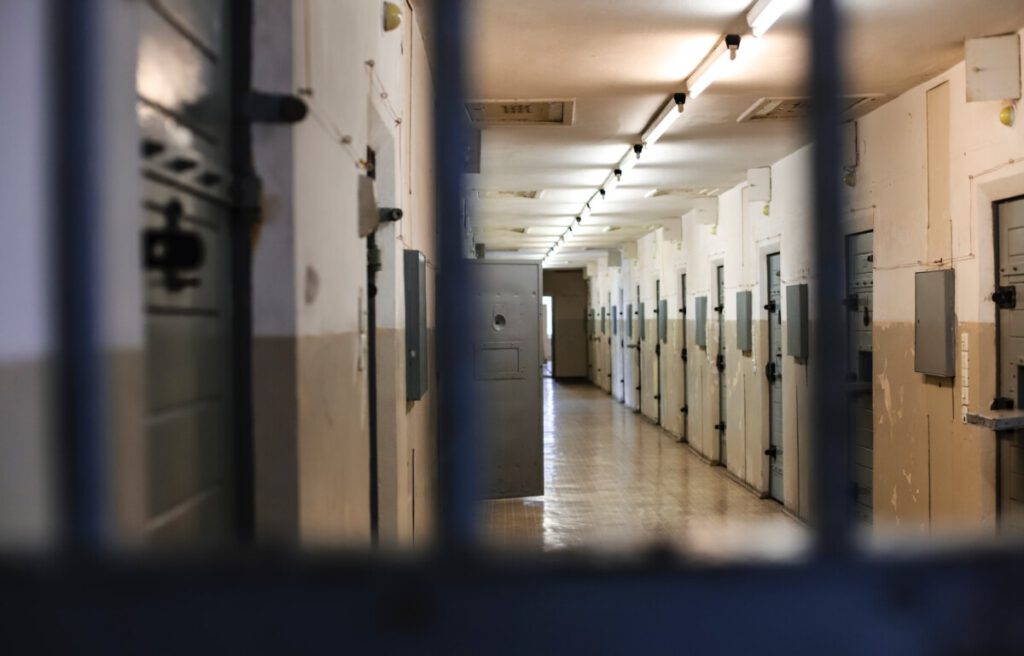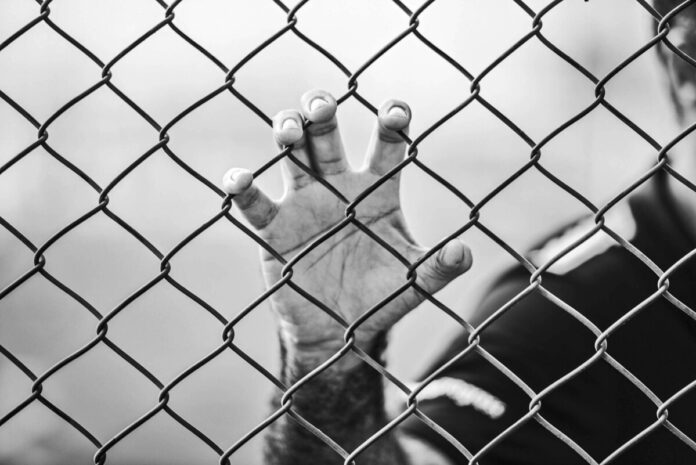Every time serious crimes are committed in the Netherlands, we always hear about judges passing a sentence of a stipulated amount of years and compulsory TBS. A lot of people, especially ex-pats, sometimes wonder what TBS is. Well, this article is just for you.
TBS is an abbreviation for ter beschikking stelling (literally meaning: “making a person available for psychiatric treatment.”) It is a kind of measure that a judge can impose on people who have committed a serious crime and who have been declared “insane” in whole or in part. These crimes may include murder, manslaughter, assault and rape, arson (that endangers or results in death), aggravated assault, armed robbery, the making of child pornography, etc.
When determining whether an offender may undergo TBS, the judge takes into account the interests of everyone involved: those of the victim(s), those of the perpetrator, and of course, those of the society.

In a lot of cases, offenders cannot fully be blamed for the crimes they’ve committed because they suffer from a personality disorder and/or a serious psychiatric disorder. As a result, there is also the risk that they may repeat the offence if they are made to only serve a prison sentence. That is why it is important that they not only serve time but also undergo TBS.
Insane and not fully responsible
In the Netherlands, a judge can only impose TBS on an offender if it is certain that they have a mental disorder, addiction and/or intellectual disability. This requires a psychiatric examination of the suspect.
A TBS patient is one who has a disorder and cannot be completely blamed for the crime they have committed. Some types of disorder that an offender could have, are; borderline, Asperger’s, a psychosis, or some other psychiatric disorders. Many TBS patients are also addicts, and as a result, need rehabilitation.
It does not make sense to punish addicts, as punishment is not going to help them get rid of their addiction. An intellectual disability can also cause someone to be insufficiently accountable for a crime. And someone who is completely insane is not legally guilty. In such a case, the judge will only impose a hospital order and not a prison sentence.
Judges can also declare a perpetrator to be less insane which makes them legally guilty and therefore, he or she is also partly responsible for the crime. The verdict is usually a combination of firstly, imprisonment, and then TBS.
The purpose of TBS
The main purpose of TBS is for the safety of society. It is important to understand that punishment as a form of incarceration does not work. Take the United States as an example. There, they focus more on the punishment of prisoners, and it has proven unsuccessful in the actual purpose of ultimately rehabilitating convicts to eventually become law-abiding citizens and productive members of society. The US Department of Justice reports that 68 percent of prisoners released, return to prison for committing a new crime within three years of leaving.

There are reasons why people offend, and it is always important (for the good and safety of society) to find out why. When people become dangerous to others, we restrain them regardless of who they are. Some of their freedoms are taken away from them as punishment by the result of their restraint. Ideally, TBS and a prison sentence would force them to reflect on their crime(s), which would ultimately deter them from repeating the offence once they’ve been released.
Imagine a person with a personality disorder committing a crime and only serving a sentence in a prison where they are ultimately punished, humiliated, and made to suffer every single day. After the sentence, they will be released into society, and the truth is that nothing would have changed.
That is why while serving their sentence, it is important that they also undergo TBS treatment. This treatment reduces the risk of recidivism. In the Netherlands, offenders with disorders are allocated a TBS officer who helps them return safely, and eventually independently to society.
Types of TBS
There are two types of TBS in the Netherlands:”TBS with compulsory guidance, or nursing” and “TBS with conditions.”
“TBS with an order for guidance” requires the patient to be (forcibly) admitted to a TBS clinic for their treatment. This is more strict and could come with rules such as no alcohol and drugs, and frequent checks to make sure that the patient is following these rules.
“TBS with conditions” is a lighter form of TBS. The patient is not required to be admitted to a clinic — but he or she must also follow the rules, and adhere to the conditions set by the judge. The probation service is tasked with supervising them. If the TBS patient does not comply with the conditions, the judge can decide to convert the TBS with conditions into TBS with a compulsory guidance order.
In practice, many of these TBS patients still stay in an institution or clinic, it doesn’t matter what type of TBS has been imposed on them. This is because the judge often sets the condition that the TBS patient is temporarily sent to a mental health care institution (GGZ).
Note: The geestelijke gezondheidszorg (GGZ) is an institution for mental health care and addiction care in the Netherlands. There are some agencies affiliated with it, like the Regional Institution for Assisted Living (RIBW), addiction clinics or psychiatric hospitals.
Treatment in a TBS clinic
A TBS clinic is all about treatment and security. TBS patients receive treatment that is tailored to their disorder and their personality. The starting point is to hold them accountable as much as possible about their responsibilities.
The treatment consists of different types of therapy, and sometimes medication. In the clinic, TBS patients are sometimes allowed to work or receive an education. This is necessary to prepare them for their return to society.
What is the duration of TBS treatment?
Treatment in a TBS clinic takes an average of seven to eight years, but in principle, no pre-agreed end date is known. Once every two years, there is an extension session about whether or not to renew the TBS. The patient is personally present, together with a lawyer. The measure can then be extended for a maximum of two years.
A TBS patient can only be released into society if treatment has been deemed successful. Successful means that the chance that a patient will commit a serious crime again has become very small. It is important that when they are brought back into society, the patient no longer a danger to themselves and others.
“Long-stay” TBS clinics
If someone does not cooperate with their treatment, it means that the chance of recurrence does not decrease and that security of society remains necessary. The judge will therefore always renew the TBS. Ultimately, this may mean that the patient is placed in a long-term hospital ward, also called a “Long-stay TBS ward.”
In this type of TBS clinic, the offender no longer receives treatment aimed at rehabilitation. However, they still get psychological and medical care and necessary security. Every three years, a special committee assesses whether they should remain in the ward or perhaps be transferred to a different clinic where treatment with the aim of rehabilitation can be resumed. This committee is called the National Advisory Committee Long-stay Placement Forensic Care (LAP).
Do TBS patients still have rights? — a Dutch debate
For years, human rights advocates in the Netherlands have criticised the Long-stay ward, claiming it as a place where TBS patients go to be locked up, forgotten, and die. The National Advisory Committee Long-stay Placement Forensic Care (LAP) released new figures in 2020 to show that half of the TBS patients who are brought into the ward, eventually leave.

LAP reports that between February 2011 and November 2019, they issued advice on 223 TBS patients in long-stay wards. 98 patients are still in that ward, and 99 have left. 26 others have since died, in or outside the TBS clinic.
Everyone has rights, and normally those rights are set out in the Dutch constitution. But some rights no longer apply to TBS patients. This is because security is of paramount importance. For example, they are given mandatory urine control. That is contrary to the fundamental right to “inviolability of the body”. The rights of TBS patients are set out in the Nursing Principles Act.
What happens at the end of a TBS treatment?
The judge decides whether the TBS can be terminated. This will only happen if the judge finds that the patient can return to society, without the risk of reoffending. The TBS clinic and the probation service first advise the judge if it is safe for the TBS patient to be released, and then the judge further decides if it is independently or not.
What does the probation service do at the end of a TBS treatment?
There are three probation services in the Netherlands: the Dutch Probation Service, the Salvation Army Youth Care and Probation Service, and the GGZ Addiction Rehabilitation Foundation. Together they ensure that ex-TBS patients return to society reformed and ready to contribute positively.
They do this through monitoring and guidance, among other things. The probation service considers it important that offenders understand (fully) what their behaviour (or reformation) might mean for their victim(s)/next of kin. They are made fully aware of how their actions (going forward) impacts their communities and society as a whole.
Step-by-step integration of TBS patients
The transition from a TBS patient who is under guidance, to an independent life in society, is not an easy one. It works best if this is done step by step. The probation service and the TBS clinic often monitor the patients for some time before they can have their independence.
What about the victims and their relatives?
A lot has been said about TBS, TBS patients, and how they are gradually reintegrated into society, to make sure they do not become repeat offenders. But it is also important to talk about the victims and their loved ones.
In the Netherlands, the Custodial Institutions and agencies involved, do take the interests of victims and next of kin into account. To help, they organise victim-offender contact, together with the Perspectief Herstelbemiddeling foundation. For example, if you have questions for the offender, or are curious as to who it is, and why you were the victim, Perspectief Herstelbemiddeling helps bring victims and offenders together.
Contact is always voluntary and may take the form of a conversation or an exchange of letters. This is done under the guidance of a professional and independent mediator from the organisation. Both the victim or next of kin and the offender can take the initiative. The contact between the victim or next of kin and the TBS patient is prepared very carefully and in consultation with the treatment officers of the patient.
Where else can victims (and/or their family and friends) go for help and information?
Victim Support Desk
The police, the Public Prosecution Service, and Victim Support work together in the Victim Support Desk. Victims may contact the Victim Support Desk for answers to questions that precede the prison sentence. For example, about reporting the crime, tracing the suspect, the lawsuit, and the decision made by the judge.
There are 10 Victim Support Desks in the Netherlands: in Amsterdam, Arnhem, Breda, The Hague, Haarlem, Hertogenbosch, Groningen, Maastricht, Rotterdam and Utrecht. A national Victim Desk has been established for appeals in ‘s-Hertogenbosch. The addresses and telephone numbers can be found on Slachtoffer Loket.
Slachtoffer Informatiepunt Schadevergoedingsmaatregelen (SIS)
The Victim Information Point for Compensation Measures (SIS) provides information on requests about the status of the payment of compensation by the offender if this has been imposed by the court. The Victim Information Point for Compensation Measures can be reached on telephone number: 0900 753 7537 (every working day from 8.15 am to 5.15 pm).
TBS is not a punishment, but a treatment
TBS is a custodial measure aimed at protecting society from the danger of the convicted person. The TBS patient has often already served a prison sentence for the crime committed. While they may not be fully responsible for the offence, the prison sentence is aimed at retaliation for that part of the offence that can be attributed to them. The TBS order must ensure — after the prison sentence — that the psychiatric illness or disorder is treated so that the chance of recurrence is prevented as much as possible.
The Dienst Justitiële Inrichtingen (DJI) (Custodial Institutions Agency) publishes reports in figures about TBS every year, and this includes information about the implementation of the TBS order. The latest report shows that TBS works and is indeed more effective than just punishing prisoners and making them suffer. There is also data backed by research that the percentage of ex-prisoners who re-offend within 2 years of release is 47%. And after TBS, it is less than 34%.
Certainly, this system is far more effective than its international contemporaries.
What do you think about TBS? Do you believe that it keeps society safe and secure? Let us know in the comments below.
Feature Image: Milad B. Fakurian/ Unsplash.

Useful article !